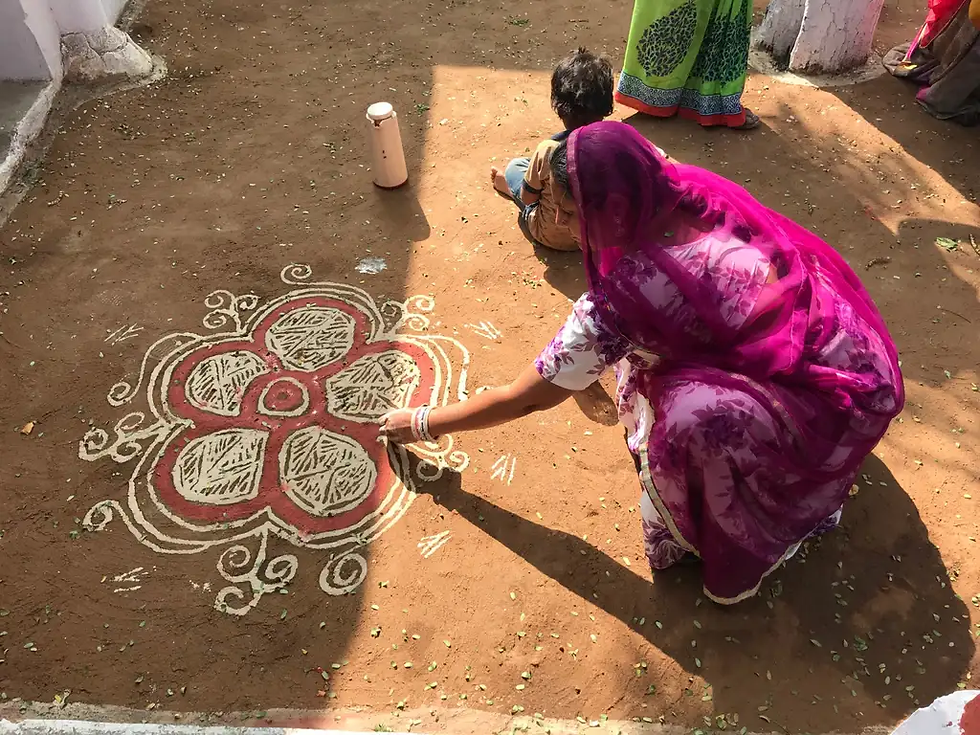“Jugaad,” an Indian innovation concept key to emerging economies
- Jessica Oyarbide

- Dec 22, 2024
- 3 min read
In Argentina, the saying "tie it with wire" is popularly used to refer to finding solutions to fix or amend things using available resources. This everyday act demonstrates the innovative way of thinking behind it and is one of the foundations of Frugal Innovation.

In emerging economies, where resources are scarce and needs are great, this gives rise to Frugal Innovation. It is an approach to developing simple, economical, and efficient solutions that creatively use limited resources to meet essential needs, especially in low-income or highly constrained contexts. This innovation model seeks to maximize the value generated while minimizing resource consumption.
The concept was popularized by Navi Radjou, an innovation and leadership expert, along with Jaideep Prabhu and Simone Ahuja, in the book Jugaad Innovation (2012). "Jugaad" is a Hindi term meaning "improvised solution" or "creative problem-solving." It is used to describe innovative solutions that emerge in conditions of scarcity but are highly functional. It resembles the famous "tying it with wire," which often results in effective, low-resource solutions.
India is a leading country in frugal innovation. With a total population exceeding 1.4 billion, and 70% living below the poverty line—a similar ratio compared to Latin America—the need for access to low-cost solutions using available resources is imminent. This type of innovation gives rise to the creation of startups and companies focused on generating a positive impact on people and the planet.
One of the great examples of how this type of solution is applied to business principles is Barefoot College, a social enterprise located in Tilonia, Jaipur, India. This institution seeks to empower the world's most disadvantaged rural communities, especially women, through training in practical and sustainable skills to solve local problems. It primarily provides training to rural mothers or grandmothers with no formal education on how to assemble, maintain, and repair photovoltaic solar panels. The goal is for them to bring light to their communities and acquire valuable tools to provide services.

Although Barefoot College began as an educational training space for these women, it has expanded its portfolio of initiatives and projects, from a medical center to cultural spaces, to a production center where products such as solar-roasted coffee and nutritional supplements made from various locally available grains to combat childhood malnutrition are produced and packaged. Each of these subprojects offers multiple examples of frugal innovation.
They have a community radio station that can be heard in the surrounding rural villages. The radio room is covered with egg crates because they discovered it had a very effective noise-insulating effect, and they avoided buying foam rubber to perform the same function.

Each of the buildings is constructed using ancestral rural techniques that utilize the resources available in the villages and have been in perfect condition for decades. They primarily use organic resources, and rainwater harvesting systems are used for irrigation.

They use discarded textiles, plastics, and other materials to create products that they then sell, which are part of their revenue model. They also create puppets from discarded textiles, which are used in educational plays for both children and adults.

EKHOS is dedicated to organizing immersion trips to India's Impact Ecosystem to gain an in-depth understanding of the solutions provided by social and impact enterprises, whose models are widely viable in Latin America. On one of the trips, they partnered with four women from the Puna region of Jujuy to receive six months of training in India. The next immersion trip is in February, where you can learn about Barefoot College and other fascinating projects. You can learn more about their trips at https://ekhos.org/india



Comments